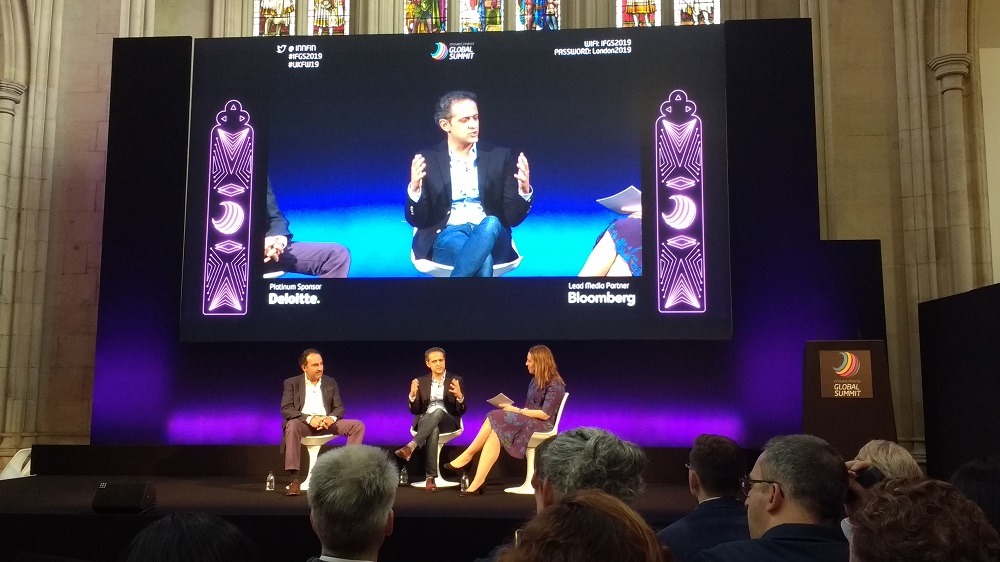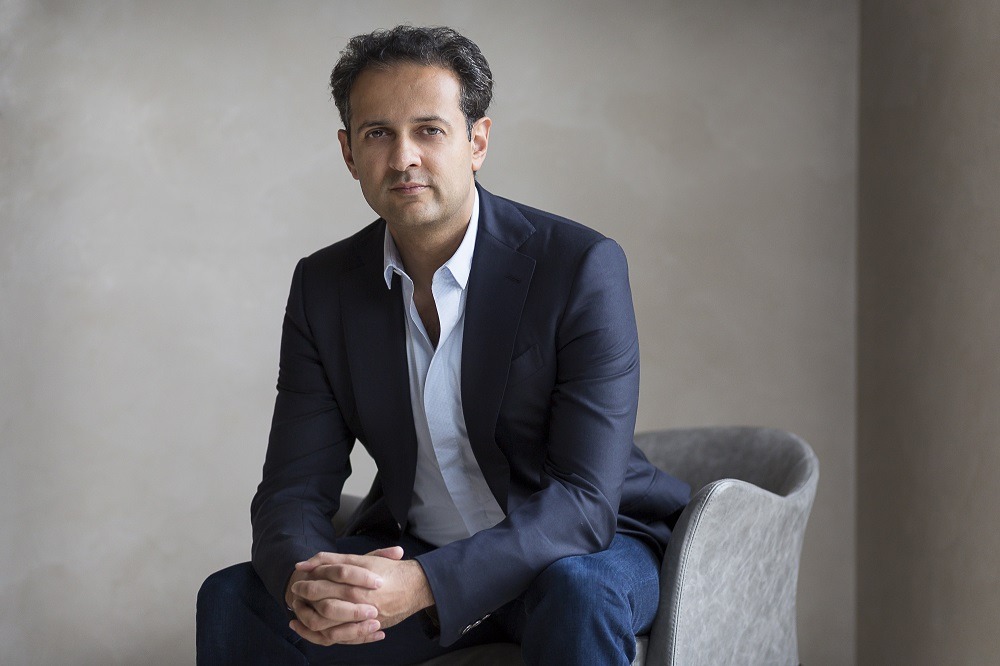At the Innovate Finance Global Summit 2019, Munish Varma spoke alongside OakNorth CEO Rishi Khosla about how Softbank Investment Advisers chooses a partner for its Vision Fund portfolio

Softbank (Credit: MIKI Yoshihito/Flickr)
Securing capital is essential for any fintech business looking to scale up its operations, and attracting the attention of a partner like SoftBank Investment Advisers could be a decisive factor in the quest to become a profitable, global business.
The Japanese investment heavyweight has pumped billions of dollars into its bulging portfolio of tech companies around the world, which includes the likes of Uber, Slack and WeWork.
With the number of new fintech start-ups seemingly multiplying by the day, many will hope to follow in the footsteps of UK-based SME credit lender OakNorth, which in February closed a $440m (£332m) fundraising round led by the SoftBank Vision Fund – making it Europe’s most valuable fintech firm.
Last week at the Innovate Finance Global Summit, Munish Varma, a partner at SoftBank Investment Advisors, sat down with OakNorth CEO and co-founder Rishi Khosla to discuss the Vision Fund, and what it looks for when making investment decisions.
Here, we recap what the pair had to say about their working relationship, and the Vision Fund’s approach to new investment opportunities.
The Vision Fund: SoftBank Investment Advisers’ multi-billion tech fund
The Vision Fund is a $100bn (£74bn) investment arm of the Japanese conglomerate SoftBank, conceived to fund the late-stage growth of promising tech companies as they look to move from start-up to scale-up status.
It is headed by SoftBank’s CEO Masayoshi Son and has injected capital into tech companies that have since become household names – the likes of Uber and Slack.

More recently, it has turned its attention to financial services companies, with multi-million investments in OakNorth and Wirecard.
According to Mr Varma, the fund was established to address two trends – the growing prevalence of data and new ways to both use and make sense of it, as well as the fact that start-up companies are spending much more time as private entities before going public.
He said: “Companies have been staying private for much longer, but that doesn’t mean their capital needs have changed.
“In fact, they are much greater because companies have to scale up much faster, and grow globally much faster, which requires capital.”
He added that the Vision Fund’s aim is to give growing businesses both the capital and patience they need to develop their products and services to the full extent of their potential.
What does the SoftBank Vision Fund look for in potential investments?
Despite its exceedingly deep pockets giving the impression of an endless supply of investment capital, the Vision Fund is selective about the ventures it chooses to back.
Mr Varma identified three areas his team scrutinises when assessing a new investment opportunity – the quality of the founding team, the size and potential of the market, and the timing of the investment.
He said: “We are looking for founders and entrepreneurs that are ambitious and share our vision for the future – and have the energy and stamina to execute that ambitious plan.

“We look for businesses that are addressing significant pain points, either for consumers or for SMEs, as in the case of OakNorth.”
“The time at which we invest is important – we are not early-stage investors.
“We look to see if the product is capable of scale, and if the market is at a point where it is the right time to scale – a point where our capital can make a difference.
“We have 70 portfolio companies around the world, and all these companies are leaders in their own field.
“We look at how an individual investment can help our overall ecosystem – and how our ecosystem can help the investment.”
Profitability not a prerequisite for entry to the SoftBank Vision Fund
Having quickly achieved profitability – after just 11 months of operation – OakNorth was something of an anomaly among young start-ups.
Mr Varma was quick to point out that his fund does not look immediately for signs of profitability when making a decision about whether to invest.
He said: “The way we look at businesses and investment in a company is to ask if the business model makes sense.
“And to prove the business model, I don’t need you to show a profit. What you do need to show at some point is a contribution margin that is positive.
“I don’t think it is necessarily a good thing for companies scaling rapidly to focus on having short-term profit on the books, as opposed to attracting more customers and building a stronger product.”
Partnership with SoftBank helped OakNorth to think bigger
Adding to the discussion, the OakNorth boss described how securing a working relationship with the Vision Fund had helped it to realise its global ambitions.

Mr Khosla said: “The international ecosystem that SoftBank’s Vision Fund has is very significant.
“The global relationships with other banks around the world were very relevant for us, as it adds to that side of the strategy to actually grow out the business internationally.
“There was a very good fit there.
“Also, the whole culture of thinking big – the ability to take all the capital constraints off, and say ‘how big can this be?’ gave us a fresh way of looking at the opportunity, and the size of the opportunity.”
